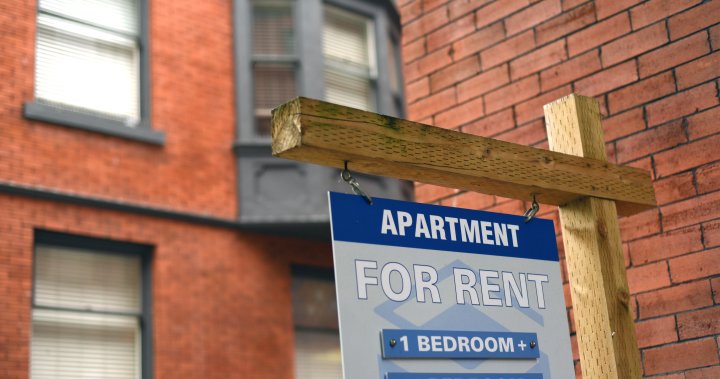A new report released by the Canadian Centre for Policy Alternatives (CCPA) reveals that minimum wage earners across Canada are struggling to keep up with rental costs due to increasing interest rates and a lack of affordable housing. The report analyzes housing markets in Canada using the concept of a “rental wage” – the hourly earnings required by a full-time worker to afford a one- or two-bedroom home at 30% of their income.
According to the CCPA analysis, the rental wages needed to live comfortably in each province surpass the minimum wages in those areas. For example, in Ontario, the rental wage needed for a one-bedroom apartment is $25.96 per hour, while the minimum wage is $15.50. This trend is similar in B.C. and Alberta, with Quebec and Newfoundland and Labrador showing smaller gaps between the rental and minimum wages.
The study found that 93% of neighborhoods surveyed did not have minimum wages that matched the rental wage, indicating a significant discrepancy for minimum wage workers. Unsurprisingly, cities like Toronto and Vancouver are particularly unaffordable for these individuals, with the rental wage being more than double the minimum wage. This reality has left single parents and low-income families with no choice but to reside in single-bedroom homes due to the unaffordability of larger units.
The pressure on renters is further intensified by rising interest rates, which have led to increased mortgage payments for homeowners and limited landlords’ cash flows. Higher interest rates also complicate the business case for new residential construction, exacerbating the existing shortage of rental units. The CCPA report emphasizes the need for government intervention and support to address these challenges.
Economist Mike Moffatt suggests that the government should provide targeted support for areas experiencing high rental demand, such as university and college campuses. Additionally, Moffatt highlights the need for tax incentives, similar to those implemented in the 1970s and ’80s, to encourage the construction of purpose-built rental housing. He argues that relying solely on the private market will not solve the rental affordability crisis, especially in the face of rising interest rates.
Both Moffatt and CCPA senior economist David Macdonald believe that a reduction in interest rates may alleviate some pressure on renters. However, they caution that this will not necessarily lead to lower rents in the long term. They emphasize the urgent need to build more affordable rental housing to address the underlying issue. The report concludes by highlighting the upcoming housing crisis and the expectation that the new housing supply act will provide much-needed solutions.
Denial of responsibility! VigourTimes is an automatic aggregator of Global media. In each content, the hyperlink to the primary source is specified. All trademarks belong to their rightful owners, and all materials to their authors. For any complaint, please reach us at – [email protected]. We will take necessary action within 24 hours.


